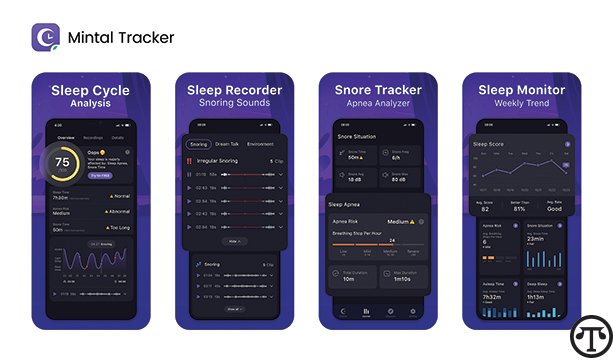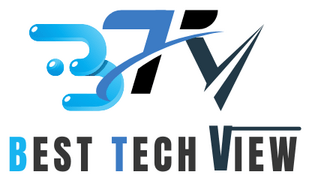Sleep trackers with snoring detection monitor sleep patterns and identify snoring episodes. They help improve sleep quality by providing valuable insights.
Sleep is crucial for overall health, yet many people struggle with sleep issues like snoring. Sleep trackers with snoring detection offer a solution by using advanced sensors and algorithms to monitor your sleep. These devices can detect snoring patterns and provide actionable insights to help you make lifestyle changes.
Many models sync with smartphone apps, offering personalized tips for better sleep. By identifying problem areas, these trackers can help reduce snoring and improve sleep quality. Investing in a sleep tracker with snoring detection can lead to better rest and overall well-being.
Introduction To Sleep Trackers
Sleep is essential for a healthy life. Sleep trackers help you understand your sleep patterns. They provide insights into your overall sleep quality. Some advanced sleep trackers even detect snoring. This feature is crucial for identifying sleep disorders.
What Are Sleep Trackers?
Sleep trackers are devices or apps that monitor your sleep. They track various metrics like sleep duration, sleep stages, and restlessness. Some sleep trackers are wearable, like smartwatches. Others are non-wearable, placed under your mattress or on your bedside table. Modern sleep trackers often come with apps for detailed analysis.
| Type | Description |
|---|---|
| Wearable | Worn on the wrist or finger |
| Non-wearable | Placed under the mattress or on the bedside |
Importance Of Sleep Quality
Good sleep quality is vital for health. Poor sleep affects mood, memory, and overall well-being. Snoring detection can highlight potential issues like sleep apnea. Identifying these issues early can improve your sleep quality. Improved sleep leads to better mental and physical health.
- Better mood
- Enhanced memory
- Improved physical health
- Early detection of sleep disorders
Features Of Sleep Trackers
Sleep trackers are smart devices that monitor your sleep patterns. They help you understand your sleep quality and habits. Some sleep trackers come with advanced features like snoring detection.
Basic Functions
Most sleep trackers have basic functions that are essential for monitoring sleep. Here are some of the basic features:
- Sleep Duration Tracking: Measures how long you sleep each night.
- Sleep Stages Monitoring: Tracks various stages of sleep, such as light, deep, and REM sleep.
- Heart Rate Monitoring: Keeps track of your heart rate throughout the night.
- Sleep Quality Analysis: Analyzes the quality of your sleep based on movement and heart rate.
- Wake Time Detection: Identifies the time you wake up each morning.
Advanced Capabilities
Modern sleep trackers offer advanced capabilities that provide more detailed insights. These features help improve your sleep quality.
| Feature | Description |
|---|---|
| Snoring Detection | Detects snoring patterns and provides reports. |
| Breathing Monitoring | Monitors your breathing rate during sleep. |
| Smart Alarm | Wakes you up at the optimal time in your sleep cycle. |
| Environmental Sensors | Measures room temperature and humidity for better sleep conditions. |
| AI Sleep Coaching | Offers personalized tips for improving sleep quality. |
Snoring Detection Technology
Snoring detection technology helps you understand your sleep patterns. It monitors and analyzes your snoring. This technology can improve your sleep quality.
How It Works
Sleep trackers with snoring detection use advanced sensors. These sensors detect sound and vibrations. They identify snoring patterns accurately.
The data is then analyzed. The tracker provides insights into your sleep. It helps you understand when and why you snore.
Benefits Of Snoring Detection
Snoring detection technology offers many benefits:
- Improves Sleep Quality: It helps identify sleep disruptions caused by snoring.
- Health Monitoring: Tracks potential health issues related to snoring.
- Personalized Insights: Provides tailored advice to reduce snoring.
These benefits can lead to better overall health and well-being.
Top Sleep Trackers With Snoring Detection
Quality sleep is essential for a healthy life. Sleep trackers with snoring detection help you improve your sleep. They monitor your snoring patterns and provide useful insights.
Popular Brands
Many brands offer sleep trackers with snoring detection. Here are some popular ones:
- Fitbit
- Garmin
- Withings
- Philips
- Apple
Key Features Comparison
Compare the key features of popular sleep trackers with snoring detection:
| Brand | Model | Snoring Detection | Battery Life | Water Resistance |
|---|---|---|---|---|
| Withings | Sleep Analyzer | Yes | N/A (USB-powered) | N/A |
| Withings | ScanWatch 2 | Yes | Up to 30 days | Splash resistant |
| Apple | Watch Series 10 | Yes | Up to 18 hours | 50m |
| Samsung | Galaxy Watch 7 | Yes | Up to 40 hours | 50m |
| Fitbit | Charge 6 | Yes (via app) | Up to 7 days | 50m |
| Oura | Ring Gen 3 Horizon | Limited (via trends) | Up to 7 days | Water-resistant |
These sleep trackers offer advanced features. They help you track your sleep and snoring effectively.
How To Use A Sleep Tracker
Tracking your sleep can greatly improve your health. Sleep trackers with snoring detection provide insights into your sleep patterns. Here’s how to use one effectively.
Setup And Calibration
Start by charging your sleep tracker fully. A good charge ensures accurate data.
Next, download the companion app on your smartphone. Most trackers sync data via Bluetooth.
Wear the tracker on your wrist before bedtime. Follow the app’s instructions for calibration.
Calibration involves setting your usual sleep and wake times. This helps the tracker understand your sleep routine.
Ensure the tracker is snug but comfortable. It should not move during sleep.
Interpreting Data
Check your sleep data each morning. The app will display your sleep stages.
Look for patterns in your sleep cycles. Aim for more deep and REM sleep.
Identify any snoring episodes. The app will show the times and duration of snoring.
Use the data to adjust your sleep habits. Try to eliminate factors that cause snoring.
Using Sleep Data
Create a sleep journal. Note changes you make based on the data.
Share your data with a healthcare provider. They can offer advice based on your sleep patterns.
Adjust your bedtime routine. Aim for a consistent sleep schedule.
Consider lifestyle changes. Healthy habits can improve your sleep quality.
Review your data weekly. Look for improvements and make necessary adjustments.
Using a sleep tracker with snoring detection can lead to better sleep. Follow these steps to get the most out of your device.
Improving Sleep Quality
Sleep trackers with snoring detection offer more than just insights into your sleep. They help improve your overall sleep quality. By identifying snoring patterns and other sleep disruptions, they provide actionable data. This data can guide lifestyle changes and optimize your sleep environment.
Lifestyle Changes
Simple lifestyle changes can significantly enhance sleep quality. Here are some suggestions:
- Regular Exercise: Engage in physical activities daily. It helps you sleep better.
- Healthy Diet: Avoid heavy meals before bedtime. Opt for light snacks.
- Consistent Sleep Schedule: Go to bed and wake up at the same time daily.
- Reduce Caffeine: Limit caffeine intake, especially in the evening.
- Avoid Alcohol: Alcohol can disrupt your sleep cycle. Minimize its consumption.
- Relaxation Techniques: Practice meditation or deep breathing before bed.
Using Data To Improve Sleep
Sleep trackers collect valuable data about your sleep habits. This data can be used to make informed decisions:
- Identify Patterns: Track your sleep and snoring patterns over time.
- Analyze Data: Use the tracker’s app to analyze your sleep data.
- Adjust Habits: Make changes based on the data. Adjust your sleep environment and routines.
- Monitor Progress: Keep an eye on improvements in your sleep quality.
Here’s how data from sleep trackers can help:
| Data Collected | Improvement Strategy |
|---|---|
| Snoring Patterns | Use nasal strips or change sleep positions. |
| Sleep Duration | Ensure you get 7-8 hours of sleep daily. |
| Sleep Stages | Optimize your sleep environment for deeper sleep stages. |
| Heart Rate | Practice relaxation techniques to lower heart rate before bed. |
By making small changes, you can achieve significant improvements in your sleep quality. Sleep trackers with snoring detection provide the insights needed to make these changes effectively.
Potential Drawbacks
Sleep trackers with snoring detection offer many benefits. Yet, they have some potential drawbacks. These issues can affect the user experience and accuracy. Below are some key concerns.
Accuracy Concerns
One major issue is the accuracy of these devices. Sleep trackers may not always detect snoring correctly. They can mistake other noises for snoring. This leads to incorrect data.
Another problem is tracking sleep stages. Many devices struggle to measure deep sleep accurately. Inaccurate data can mislead users about their sleep quality. Users might think they slept well when they did not.
Here is a table summarizing accuracy concerns:
| Issue | Description |
|---|---|
| False Snoring Detection | Other sounds mistaken for snoring. |
| Inaccurate Sleep Stages | Difficulty measuring deep sleep. |
Privacy Issues
Privacy is a significant concern with sleep trackers. These devices collect a lot of personal data. Users might worry about where this data goes. Who has access to it?
Many sleep trackers connect to apps. These apps may share data with third parties. This sharing can happen without user consent.
Here are some privacy issues in bullet points:
- Data Collection: Personal sleep data stored.
- Third-Party Sharing: Data shared without consent.
- Security Risks: Potential for data breaches.
Users need to read privacy policies carefully. They should know how their data is used.

Credit: www.amazon.com
Future Of Sleep Tracking
Sleep trackers with snoring detection are evolving rapidly. These devices are becoming more advanced and user-friendly. They help improve sleep quality. The future of sleep tracking holds exciting possibilities.
Emerging Technologies
Emerging technologies are revolutionizing sleep tracking. Artificial Intelligence (AI) is playing a crucial role. AI can analyze sleep patterns more accurately. Machine Learning (ML) helps in predicting sleep issues. These technologies provide personalized insights.
Wearable devices are getting more sophisticated. They now include biometric sensors. These sensors monitor your heart rate and breathing. Some devices even track your body temperature. All this data helps in better sleep analysis.
Non-wearable sleep trackers are also gaining popularity. These devices can be placed under your mattress. They offer a less intrusive way to monitor sleep. They use ultrasound and radio waves to track your movements. This ensures accurate data collection.
Integration With Other Health Devices
Integration with other health devices is a significant trend. Sleep trackers can now sync with fitness trackers. This provides a comprehensive view of your health. You can see how your physical activity affects your sleep.
Some sleep trackers connect with smart home devices. For example, they can adjust the room temperature. They can also control lighting to create a better sleep environment. This integration makes your home smarter and more comfortable.
Many sleep trackers now work with health apps. These apps store all your health data in one place. You can easily track your progress. This makes it easier to achieve your health goals.
Table: Emerging Technologies In Sleep Tracking
| Technology | Feature |
|---|---|
| AI | Analyze sleep patterns |
| ML | Predict sleep issues |
| Biometric Sensors | Monitor heart rate and breathing |
| Non-wearable Trackers | Use ultrasound and radio waves |
Benefits Of Integration
- Comprehensive health data
- Improved sleep environment
- Easy progress tracking
The future of sleep tracking is promising. With emerging technologies and integration, sleep quality will improve. These advancements make sleep tracking more effective and user-friendly.

Credit: www.mynewstouse.com
Frequently Asked Questions
Is There A Sleep Tracker That Detects Snoring?
Yes, several sleep trackers detect snoring. Popular options include Fitbit, Withings, and SleepScore Max. These devices provide detailed sleep insights.
What Is The Sleep Tracking App That Records Snoring?
The sleep tracking app that records snoring is Sleep Cycle. It monitors sleep patterns and detects snoring.
Is There An App That Records Snoring Sleep Talking?
Yes, several apps record snoring and sleep talking. Popular options include SnoreLab, Sleep Cycle, and ShutEye.
Can I Record Myself Sleeping To See If I Snore?
Yes, you can record yourself sleeping to check for snoring. Use a smartphone app or a recording device.
Conclusion
Sleep trackers with snoring detection offer valuable insights for better sleep quality. They help identify sleep disturbances and patterns. By monitoring snoring, these devices promote healthier sleep habits. Invest in a sleep tracker to enhance your overall well-being and enjoy restful nights.
Make informed choices for a healthier, snore-free sleep experience.

A passionate tech blogger and the founder of Best Tech View, a dynamic platform dedicated to all things technology. With a keen interest in the tech, Ahmad strives to provide insightful and engaging content on the latest tech trends, and breakthroughs.
